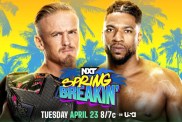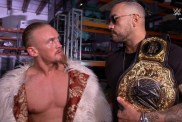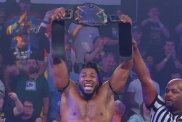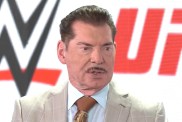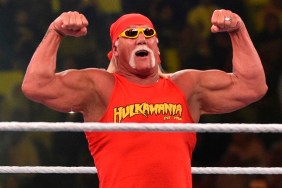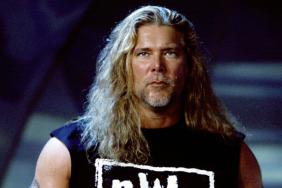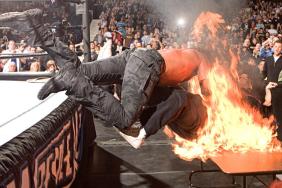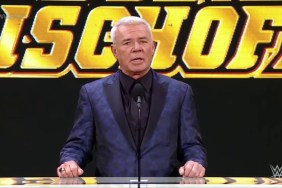Former WCW ring announcer Gary Michael Cappetta recently spoke with PhillyVoice.com to promote his one-man show, “Beyond Bodyslams,” which comes to Philadelphia on February 19th. Below are some interview highlights:
PV: Do you have a preview of your behind-the-scenes stories that you’ll expand on during your show?
GMC: Yeah, just like a band that tours that’s a well-known band and has their greatest hits … I have my greatest hits. There are stories that people always ask me about, incidents that I just happened to be present for. So one of the top ones is the night Mick Foley lost his ear in Germany. They tossed his ear to me, and I took it backstage to try to save it. Not only do I tell the story of what happened that night – it was a non-televised house show – but there was this German fan in the audience that had a camcorder. And I have the footage of that match, so people can see how it happened.
Another story – and these are just circumstances that I just happen to fall into – the night in England when Arn Anderson and Sid Vicious had their fight in a hotel, which turned out pretty bloody. That was outside my hotel room. Arn’s room was right across the hall from mine and Sid had come back to challenge him. So I’ll be talking about that, too.
That’s the beauty of this kind of a show. If people enjoy it in Philly, I can come back in a while and do another show. I have 40 years of experiences, so I’m just picking certain stories from my book, so that’s the theme of the night. That’s why it’s called Beyond Bodyslams. I’ll tell you stories from the book and stories that are beyond the book that are not included. And, of course, you’re not going to get a visual presentation of that story unless you come to the show because it’s on video.
PV: Do you still keep in touch with any of the guys you used to work with in mainstream wrestling?
GMC: No. There was such tenseness between WCW and WWF, that it was considered hazardous to even interact with the talent from the other promotion. They were so paranoid about who was spying on who. Most of the people that I’ve kept in touch with are the people that I’ve met on the indie scene, some of which have gone on to international stuff. But the other thing is that part of my contract when I was with WCW – well, they had a rule that they would only pay for your rental car if three guys traveled together – and I knew I wouldn’t last. I wouldn’t do that. I needed my space. So part of my WCW contract was that I traveled alone. They paid for my rental car, they paid for my hotel, and I had corporate perks with performance money. So I had the best of both worlds. I was very lucky. And once in a while when I wanted company, I would ask guys like Mick Foley, The Undertaker, Dutch Mantell, Ron Simmons to travel with me, it would just depend on what’s going on. And they liked traveling with me like I said, they paid for my hotel, they paid for my food, they paid, you know, everything. Not just airfare, which everyone got. So I would share my benefits with the guys that were traveling with me.
PV: Did WWF ever reach out to you after you left WCW?
GMC: No. They did reach out when they were putting together their very first encyclopedia. We didn’t have a very good relationship afterward because I sued them for the use of my performances back in the 80s on their Coliseum Video series. They also lifted my voice and used it in the audio tape of a Hulk Hogan workout set. And nobody would dare ever do that, but I did. I didn’t think it was fair or right. I’m not saying I sold any video tapes, it’s not because I was on it that they sold more, but I believe that it enhanced the enjoyment of the people that watched it. It’s not like a Jesse Ventura case where he won $900,000 against them because he’s a headliner.
When I came off the road with WCW – and I would average between 180-210 nights a year, and those are just events – and I was flying home and you lose that other day, it was very difficult to make the transition and I needed to decompress. I just needed a little transition. And that’s when I started to write. When I finished with WCW, I took two years and I wrote “Bodyslams.” I didn’t work anywhere else; I didn’t announce anywhere else, I just spent a solid two years writing a book.
PV: Do you have specific memories of the shows you’ve done in Philly, whether with WCW or ROH?
GMC: There’s so much. I started at the Philadelphia Arena at 45th and Market doing the WWWF television show. We would tape every third Tuesday night and that would go across the Northeast. Then the Spectrum was built, and our Saturday night monthly shows moved from the Philadelphia Arena moved to the Spectrum. Then I came back with the NWA and we were over at the Civic Center. Then I was with Ring of Honor. Ring of Honor was born in Philadelphia. So my career spans 30-some years in Philadelphia with every generation of wrestling fan.
If I were to go way back, what would stand out to me? My first time on television was in Philadelphia. So that was huge to a 23-year-old guy.
Then, at the Spectrum, Bruno Sammartino came back for his world title and he challenged “Superstar” Billy Graham. We sold out the Spectrum three months in a row with that main event. 19,500 people. And then bringing the NWA to Philadelphia, which was such a grittier, harder-hitting product with a crowd that was more into violence before ECW.
Ring of Honor is memorable to me because, although I wasn’t the ring announcer, I did the backstage interviews. When I look at the talent I helped to coach in their interviews in Philly – just 10 years ago – I’m talking about CM Punk, AJ Styles, Colt Cabana, Samoa Joe, Daniel Bryan. So when you look at those wrestlers that were on the edge of going international, that’s exciting to me. Once again, because I believe that that’s the only place where guys can learn [independent wrestling] and then create a career for themselves and become household names. I’m very proud of that.
PV: Do you mainly focus on the U.S. indie scene or do you pay attention to the indie scene internationally as well?
GMC: I focus on the U.S. indie scene because when I do an interview like I’m doing here for Philly, I want to promote that group. Monster Factory is very well known, but that’s not the same for every city. Also, my audience skews a little bit older, and they may not be aware of the independent wrestling in the area. So, I want them to know about Chaotic Wrestling in New England and AAW in Chicago and NWA Supreme in Indianapolis, and the Monster Factory in the Philly area. It’s to raise awareness of each promotion in every metropolitan area I go to.
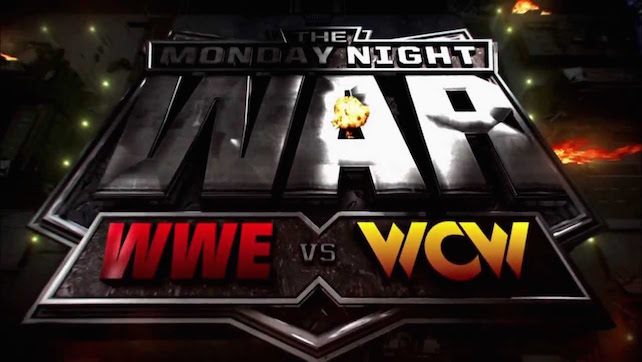
 Nick was born and raised in Detroit, Michigan, and lived there until the age of 18, when he decided to pack his flack jacket and move to New York City.
Nick was born and raised in Detroit, Michigan, and lived there until the age of 18, when he decided to pack his flack jacket and move to New York City.